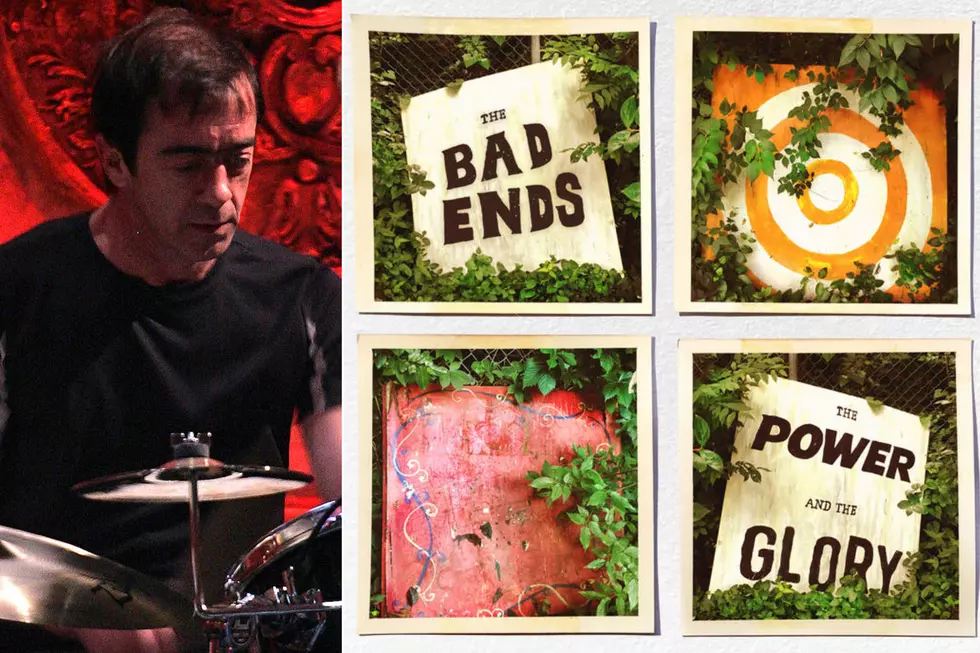
30 Years Ago: R.E.M. Become Superstars With ‘Out of Time’
R.E.M. broke every one of their own rules on Out of Time, emerging as unlikely superstars along the way.
Released on March 12, 1991, the project went four-times platinum, gave R.E.M. a No. 1 album for the first time in both the U.S. and the U.K., won three Grammy Awards and spun off their highest-ever charting single with the mandolin-driven No. 4 hit "Losing My Religion."
That signaled an intriguing move toward more Americana-influenced sounds that would continue through R.E.M.'s next album, 1992's Automatic for the People. At the same time, "Losing My Religion" marked a radical change in narrative approach for Michael Stipe.
“I wanted to write a song about unrequited love and about desire,” he told Consequence of Sound in 2016. “I had not written love songs up to that point, so this was me stepping into what I consider to be the most clichéd of pop songs.”
This newfound ability to control and direct his muse helped propel R.E.M. to this next level of success. “I had a pretty clear idea of what I was good at and how I could manifest that," Stipe told The Guardian in 2016, "but also the power of the word. ... I began to realize around Document [in 1987] that I had skill and I honed it. In time, it went from skill to art and my job was to forget everything and allow the instinct to take over, and that’s when the great songs came.”
R.E.M. entered this period simply exhausted after nearly a decade on the road. They decided going in that there would be no tour in support of Out of Time, and that guided the album toward more contemplative musical experiments like the mandolin. “One of the rules we had when we started writing songs for the record was ‘there will be no more R.E.M songs,’" bassist Mike Mills told Gigwise in 2016. "If it sounds like an R.E.M song that could have been on any of the last two or three R.E.M records, we tossed it.”
Out of Time represented more than a shift from political treatises to songs about relationships. R.E.M. even changed instruments during the writing stages for this album. "We were really stretching ourselves," Stipe told The New York Times in 2016, "trying really hard to push what we did."
It started with Peter Buck, who told Rolling Stone that he "was a little bored with guitar. I had been playing it eight hours a day for all of my life." He'd earlier added a few folky touches to 1989's Green, but this represented a much deeper dive into the mandolin – and the demos reflect that wide-open sense of experimentation. Mills dabbled on the keyboard, and can be heard on the harpsichord during the finished version of "Half a World Away"; drummer Bill Berry started fooling around on the bass.
Gutsy and creatively free, Out of Time did things other R.E.M. albums hadn't. Bulked up with additional sessions help from bassist/guitarist Peter Holsapple of the dB's and horn-player Kidd Jordan, they moved with ease between the moody, elliptical "Low" (which grew out of a fever dream-type experience out on the road), down-home side trips like "Belong" and "Country Feedback," the gorgeously melancholy "Near Wild Heaven" and the hip hop-inflected "Radio Song" (a biting indictment of narrowing playlists featuring KRS-One), while also making room for the pure-pop confection of "Shiny Happy People."
Watch R.E.M.'s 'Losing My Religion' Video
Meant to cheer up a nation worn down by conflict in the Middle East, the Kate Pierson duet "Shiny Happy People" instead tended to horrify some fans who'd followed R.E.M. since the days of their dark and mystical debut Murmur. “I’ve made my excuses over and over again," an unrepentant Stipe joked with The Guardian, "and I’ll go to the Hague with my excuses for that song.” Elsewhere, he told Gigwise that "Shiny Happy People" is “really fun to sing,” but admits “if people associate us and our 30 years of music with that song and if that’s their way into R.E.M, I don’t think it completely represents us.”
By May, Out of Time reached No. 1 on the Billboard charts. R.E.M. were then knocked out of the top spot, only to return again the following week. Meanwhile, "Losing My Religion" shot into the Top 20 in six different countries. Of course, R.E.M. had notched a Top 10 album before with Document, and a pair of Top 10 singles in 1989's "Stand" and "The One I Love" in 1987, but there had never been anything as monolithic as this. Athens, Ga.'s little indie band was all grown up.
“I couldn’t go anywhere after [‘Losing My Religion’] became the huge hit single that it became around the world,” Stipe told Consequence of Sound, admitting that the band started calling him "Face," since he was suddenly so recognizable.
Always a group that shared songwriting credits equally, R.E.M. was just as democratic about their response to this newfound fame. “Nothing felt like it came on too fast, nothing felt like it was more than we could handle,” Mike Mills told The Guardian. “Of course he would,” Stipe countered. “That’s his personality.”
Buck, for his part, said “it was all kind of bullshit. We just made a record. Big deal." Of course, they didn't tour after releasing Out of Time, so Buck didn't have much face to face time with R.E.M.'s quickly growing new base of fans.
Over the ensuing four years, they'd issue two more Top 5 albums before finally heading back to the stage. "I never really had to confront the overwhelming nature of it until 1995," Buck told The Guardian, "which was mind blowing for all of us."
That started from this very exciting new vista. "For us," Mills told Rolling Stone, "it wasn't like, 'Hey, we're No. 1!' It was more like, 'These idiots finally realized that there's music out there that they were ignoring. Not just ours. Hopefully that opened the door to other quality bands. If you keep banging on the door long enough, somebody's got to answer."
R.E.M. Released One of Rock's Most Hated Records
More From Ultimate Classic Rock










